Putting solar panels on the roof doesn't change emissions from driving an electric car
Submitted by brad on Mon, 2019-03-11 12:01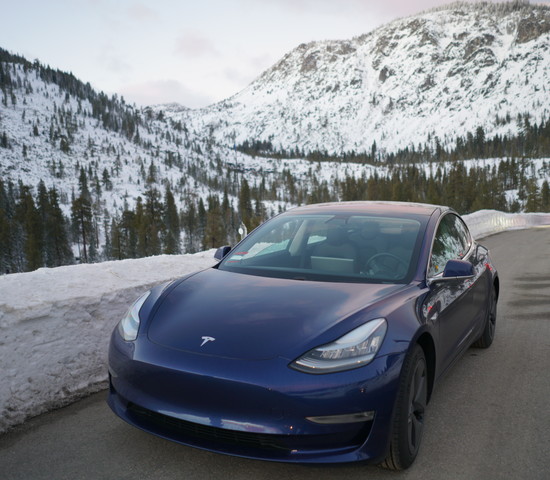
Earlier, I wrote about what happens when we put renewables on the grid and how complex it is.
Environmental issues, energy and electric cars

Earlier, I wrote about what happens when we put renewables on the grid and how complex it is.

The question every electric car buyer asks is how convenient charging will be, and how much will the range limit my travel - known as "range anxiety."
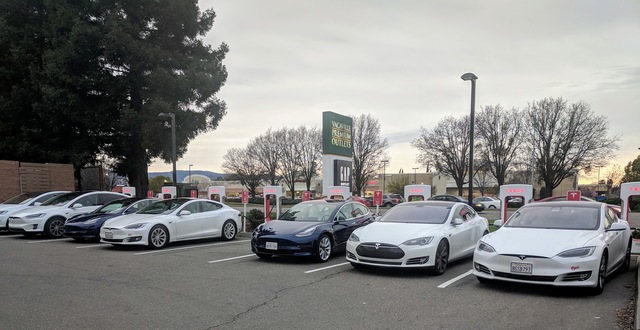

I have written often about the new economies in transportation that future technology like robocars provide. In my research I've learned something that seems to not be well known in the transportation world -- that often, smaller is better and more energy efficient.
Not long after I got it, I had a burglary of my Tesla. This led to an upcoming article on what cars of the future might do about break-ins As a background to that article, I am adding some details about what might have happened better.

As you might guess, my recent switch to an electric car is revealing a variety of things to me, so you will be seeing more on that in the coming period.
Here's a moderately surprising result of switching to an electric car. Here in California, my electric bill went down. Just by a little, but in essence the (green) energy for my car is coming for free.
On my recent bill I used 900kwh and paid $168. 2 months ago I used 700kwh and paid $178. I drove around 900 miles. A small amount of my car electricity came from Tesla superchargers or other charging stations. Most was from my house. Yes, I use an above average amount of electricity already.
Why this this happen?
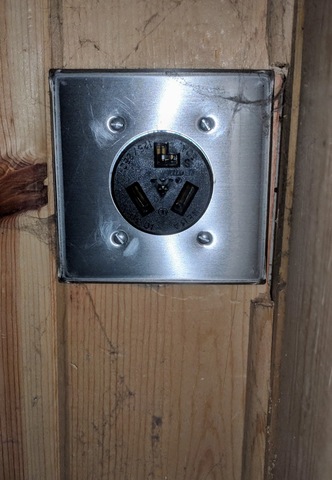
As an update to my proposal for a special circuit breaker to assist in managing home power I thought I would propose a much simpler alternative for those who have a dryer plug in their garage.
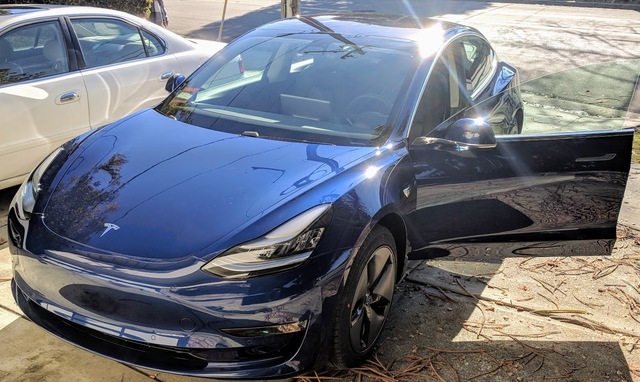
As I posted earlier I purchased a Tesla Model 3, the mid-range version with one motor and autopilot.
There are many reviews of this car out there, so I will go quickly over the common issues to get to areas I can give a special perspective on.

Scooters from Lime and Bird have been causing a stir as they move quickly into cities. There's been blowback, because riders travel recklessly, often on sidewalks, and they also leave scooters just lying on the sidewalk, blocking things, because as dockless scooters you can drop them anywhere. Riders are also getting hurt, these are not the safest things to ride.
So cities are striking back, trying to stop, regulate or collect money from these scooter operators.
Some news items, and then some analysis of the energy needed to reposition and charge all the dockless scooters from Lime and Bird.

While I was watching a rocket lifting some of my friend's satellites into space from my driveway yesterday, my new electric Tesla car was delivered to that driveway.


In the world of electric cars, some people talk about an idea called "vehicle to grid" or V2G. Renewable energy's biggest challenge is storage -- wind and solar only come at certain times of the day, but we need electricity all day. The V2G hope is to use all the batteries in electric cars as a means of grid storage.
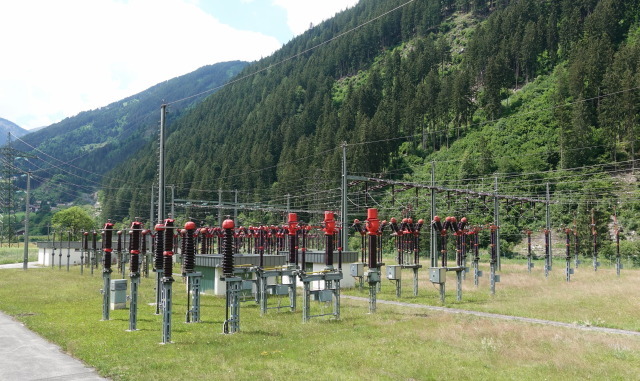
This is where your car charges, not at your house
Many of us believe that there's a natural fit between electric drive trains and robocars. It's not required -- you can certainly make robocars driven by gasoline, natural gas, hydrogen or anything else.
Electric has several advantages:
 I and many others feel the best way to set urban and transportation policy is to properly price in the "externalities" into our travel, and to remove all other penalties and subsidies. If you can do this, then everybody is incentivized to improve the public good. In particular, entrepreneurs and companies are motivated this way, and it's their job to think of the new things nobody else thought of.
I and many others feel the best way to set urban and transportation policy is to properly price in the "externalities" into our travel, and to remove all other penalties and subsidies. If you can do this, then everybody is incentivized to improve the public good. In particular, entrepreneurs and companies are motivated this way, and it's their job to think of the new things nobody else thought of.
Today I want to look at some implications of Tesla's Master Plan Part Deux which caused some buzz this week. (There was other news of course, including the AUVSI/TRB meeting which I attended and will report on shortly, forecast dates from Volvo, BMW and others, hints from Baidu, Faraday Future and Apple, and more.)
In Musk's blog post he lays out these elements of Tesla's plan
Except for the first one, all of these are ideas I have covered extensively here. It is good to see an automaker start work in these directions. As such while I will mostly agree with what Tesla is saying, there are a few issues to discuss.
In my article earlier this year on the future of transit I laid out why transit should mostly be done with smaller (van sized) vehicles, taking ad-hoc trips on dynamic paths, rather than the big-vehicle, fixed-route, fixed-schedule approach taken today. The automation is what makes this happen (especially when you add the ability of single person robocars to do first and last miles.) Making the bus electric can make it greener, though making it run full almost all the time is far more important for that.
 The same is true for trucks, but both trucks and buses have huge power needs which presents problems for having them be electric. Electric's biggest problem here is the long recharge time, which puts your valuable asset out of service. For trucks, the big win of having a robotruck is that it can drive 24 hours/day, you don't want to take that away by making it electric. This means you want to look into things like battery swap, or perhaps more simply tractor swap. In that case, a truck would pull in to a charging station and disconnect from its trailer, and another tractor that just recharged would grab on and keep it going.
The same is true for trucks, but both trucks and buses have huge power needs which presents problems for having them be electric. Electric's biggest problem here is the long recharge time, which puts your valuable asset out of service. For trucks, the big win of having a robotruck is that it can drive 24 hours/day, you don't want to take that away by making it electric. This means you want to look into things like battery swap, or perhaps more simply tractor swap. In that case, a truck would pull in to a charging station and disconnect from its trailer, and another tractor that just recharged would grab on and keep it going.
I've been electric car shopping, but one thing has stood out as a big concern. Many electric cars are depreciating fast, and it may get even faster. I think part of this is due to the fact that electric cars are a bit more like electronics devices than they are cars. Electric cars will see major innovation in the next few years, as well as a decline in their price/performance of their batteries. This spells doom for their value. It's akin to cell phones -- your 2 year old cell phone still functions perfectly, but you dispose of it for a new one because of the pace of innovation.
Copyright © 2025, Brad Ideas
Designed by Zymphonies
